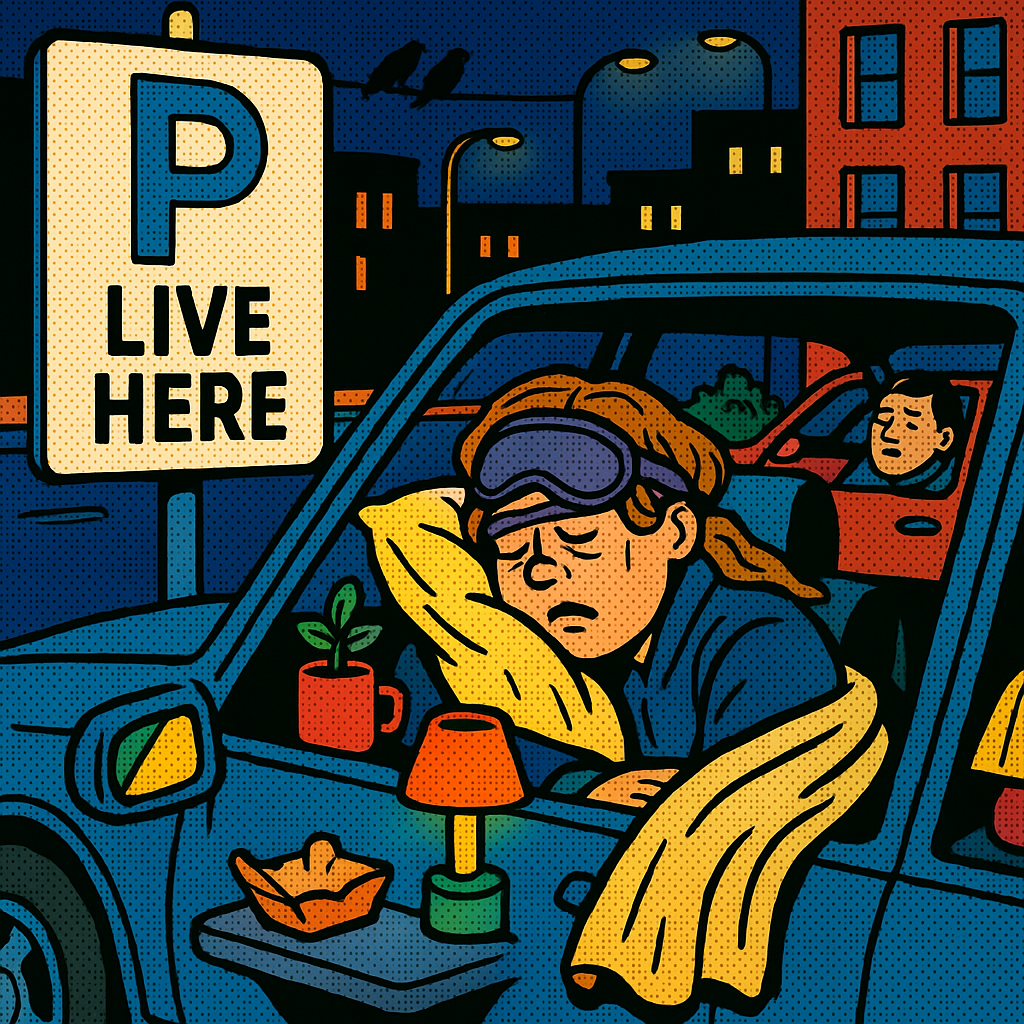Des Moines, IA – In a bold move to tackle the ever-escalating issue of urban congestion, the Des Moines City Council has officially rolled out a suite of stringent parking policies designed with one intriguing goal in mind: to make it more convenient for residents to convert their personal vehicles into permanent living quarters. This unprecedented initiative, warmly dubbed “ParkLife”, purportedly offers a pragmatic solution to the city’s real estate bottleneck.
Speaking at the press briefing, Council Chairperson Linda Velcro praised the regulatory changes as “a visionary answer to housing shortages.” She elaborated, “Instead of cluttering our streets with unattainable parking tickets, we’re encouraging a culture where every parking space doubles as affordable housing.” This legislative shift marks a turning point in urban planning, as velcro boasted that Des Moines is setting an example through its willingness to reimagine public space as both a residential domain and a parking facility.
In addition to allowing overnight stays in personal vehicles, the new regulations mandate the installation of mini-camping zones in key metro parking lots. Featuring essential utilities such as car-charging stations and complimentary odor-neutralizing air fresheners, these zones are intended to make the transition from a traditional domicile to vehicular residency as seamless as possible. Dr. Harold Motormind, a renowned automotive economist, expressed his support, claiming, “By blurring the lines between public infrastructure and personal habitat, Des Moines challenges us to reconsider the multifunctional possibilities of our driveways.”
Meanwhile, residents are finding themselves drastically re-evaluating their lifestyle choices. Local percussionist and part-time sandwich artist, Jerry Hubcab, proclaimed, “I’ve traded a cramped studio for a ’97 Subaru Outback—my rent is cheaper, the acoustics are killer, and I haven’t had to share a wall with an aspiring DJ in months.” Although initially resistant, many are finding the new arrangements not only economically beneficial but also remarkably liberating, provided their wheels are home to a sufficient data plan.
Despite apparent advantages, some unintended consequences are taking root. As the city leans into mobile habitation, a peculiar form of traffic congestion has emerged. The mid-morning “house shuffle”—a ritual where car-dwellers re-park to avoid violating the well-meaning “Sun NiCozy: ‘No Consecutive Night’ Policy”—has led to a spike in school bus delays and spontaneous block parties in intersections. City transit officials remain optimistic, however, launching a new mobile app, “Commuter Community,” designed to match temporary street roommates until the shuffle subsides.
Concluding on a hopeful note, Council Chairperson Velcro indicated the city’s intention to further expand parking reforms, musing, “When every parking spot is both a driveway and a doorstep, our streets become a melting pot of mobility and cohabitation. Today it’s car-living; tomorrow, who knows? Maybe the cul-de-sac will redefine itself as a progressive condominium circuit.”
Increased vehicular density notwithstanding, one cannot help but wonder if Des Moines is indeed leading the nation towards a future where car keys are the ultimate key to the American Dream.

Leave a Reply